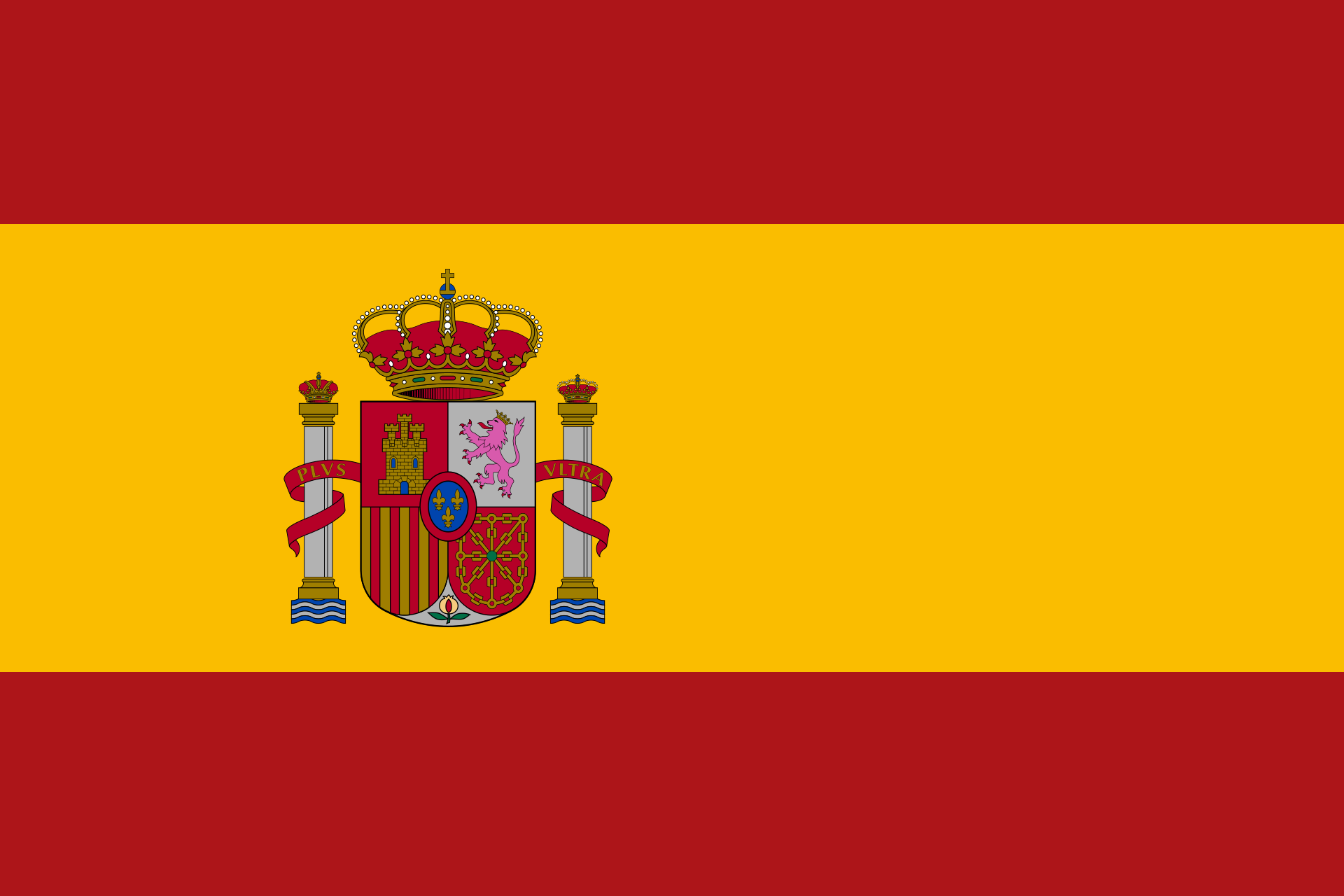Spain
Spain, a country on Europe’s Iberian Peninsula, includes 17 autonomous regions with diverse geography and cultures. Capital city Madrid is home to the Royal Palace and Prado museum, housing works by European masters. Segovia has a medieval castle (the Alcázar) and an intact Roman aqueduct. Catalonia’s capital, Barcelona, is defined by Antoni Gaudí’s whimsical modernist landmarks like the Sagrada Família church

-
Capital: Madrid
Important Cities: Barcelona, Valencia, Seville, Zaragoza
Airports:
- A Coruña (LCG)
- Barcelona (BCN)
- Girona (GRO)
- Ibiza (IBZ)
- Lleida (ILD)
- Murcia (RMU)
- Santander (SDR)
- Tenerife South (TFS)
- Vitoria-Gasteiz (VIT)
- Alicante (ALC)
- Bilbao (BIO)
- Gran Canaria (LPA)
- Jerez de la Frontera (XRY)
- Madrid (MAD)
- Palma de Mallorca (PMI)
- Santiago de Compostela (SCQ)
- Valencia (VLC)
- Zaragoza (ZAZ)
- Almería (LEI)
- Castellón de la Plana (CDT)
- Granada (GRX)
- La Palma (SPC)
- Málaga (AGP)
- Pamplona (PNA)
- Seville (SVQ)
- Valladolid (VLL)
- Asturias (OVD)
- Fuerteventura (FUE)
- Huesca (HSK)
- Lanzarote (ACE)
- Menorca (MAH)
- Reus (REU)
- Tenerife North–Ciudad de La Laguna (TFN)
- Vigo (VGO)
Tourist Attractions:
-
Sagrada Família: Gaudí's masterpiece in Barcelona.
Alhambra: A stunning palace and fortress complex in Granada.
Park Güell: Another Gaudí creation in Barcelona.
Prado Museum: Madrid's world-famous art museum.
Seville Cathedral: The largest Gothic cathedral in the world.
Currency:
Euro (EUR)
Cuisines:
Paella: A saffron-infused rice dish with various ingredients.
Tapas: Small, flavorful dishes often served with drinks.
Gazpacho: A cold tomato-based soup.
Tapas: Small, flavorful dishes often served with drinks.
Gazpacho: A cold tomato-based soup.
Cultural Activities:
Spain is known for its flamenco music and dance.
Festivals like La Tomatina, San Fermín, and La Feria de Abril offer vibrant cultural experiences.
Bullfighting is part of Spanish tradition, although it’s controversial and less popular today.
Festivals like La Tomatina, San Fermín, and La Feria de Abril offer vibrant cultural experiences.
Bullfighting is part of Spanish tradition, although it’s controversial and less popular today.
Accommodation:
Spain offers a wide range of accommodations. Notable hotels include The Westin Palace Madrid, Hotel Arts Barcelona, and Alhambra Palace in Granada.
Transport Connectivity:
Spain has a well-developed high-speed rail network (AVE).
Buses are an economical way to travel between cities.
Spain has a comprehensive road network with highways (autopistas) and regular roads (carreteras).
Buses are an economical way to travel between cities.
Spain has a comprehensive road network with highways (autopistas) and regular roads (carreteras).
Population:
Approximately 47 million.
Religion:
Predominantly Roman Catholic.
Languages Spoken:
Spanish (Castilian): The official language.
Catalan, Galician, and Basque: Co-official regional languages in their respective regions.
English and other languages are spoken in tourist areas.
Catalan, Galician, and Basque: Co-official regional languages in their respective regions.
English and other languages are spoken in tourist areas.
Disclaimer:
The information above is for reference, and we do not accept any liability for inaccuracies or updates.